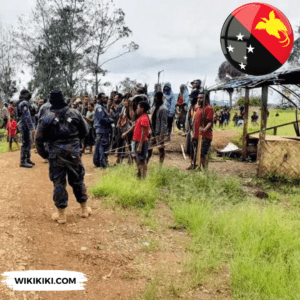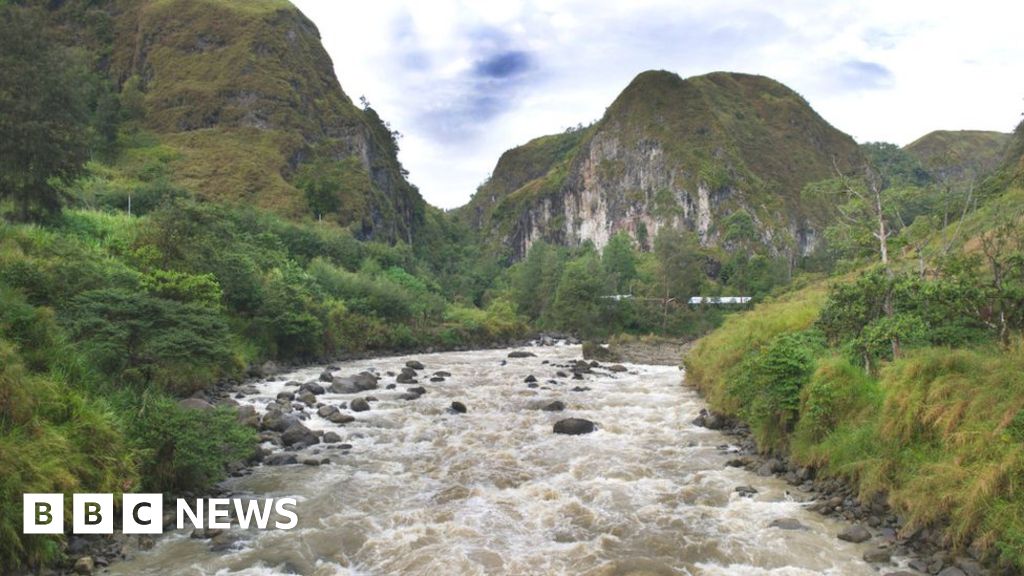Tribal violence in Papua New Guinea has surged in recent years, resulting in numerous deadly clashes between rival tribes. The remote Highlands region, in particular, has been a hotspot for such conflicts.

Also Read: Former Thailand PM Thaksin Shinawatra Freed on Parole After 6 Months in Hospital
The reports shows that at least 64 people were killed in tribal violence in the Wapenamanda District of Enga Province.
The conflict involved the Ambulin and Sikin tribes, along with their allies. High-powered firearms, including AK47 and M4 rifles, were used in the battles.
Graphic images and videos from the scene depict a gruesome aftermath, with bodies strewn across the roadside and piled onto trucks.
Royal Papua New Guinea Constabulary reported at least 53 combatants killed in a gunbattle between warring tribes in Enga province.
Later revised down to 26 deaths, then revised upward to 49 deaths after more bodies were recovered. The clash occurred as a tribe, their allies, and mercenaries were en route to attack a neighboring tribe, resulting in an ambush. Police reinforcements were dispatched to the scene to restore order.
Dozens of men were killed in a fresh outbreak of tribal violence in the remote highlands of Papua New Guinea, according to local police.
The death toll initially reported at 53, later revised down to 26, then upward to 49, underlining the nature of the conflict.
The ambush, characterized by heavy gunfire, underlines the brutality of tribal warfare in the region. Authorities struggle to contain the violence, with limited resources and access to the conflict zones.
Tribal warfare has been a part of Papua New Guinea’s history, rooted in disputes over land, resources, and historical grievances. Clashes between rival clans have escalated in recent years.
Also Read: US Condemns Attacks Against Indian Students, Says ‘No Excuse for Violence’
Rapid population growth, with limited economic opportunities, has tensions over access to land and resources. Unemployment, poverty, and inequality have strained relations between communities.
The influx of illegal firearms, including automatic rifles, has escalated the lethality of tribal conflicts. Easy access to weaponry has emboldened warring factions, leading to a cycle of retaliation and revenge killings.
Papua New Guinea’s security forces are stretched thin, with a shortage of personnel and inadequate equipment to address the violence. Police officers are often ill-equipped to handle heavily armed combatants.
The remote and rugged terrain of the Highlands region complicates efforts to provide assistance to affected communities. Inaccessible areas hinder the delivery of humanitarian aid happening in the region.
Weak governance and political instability have hampered efforts to implement long-term solutions to tribal violence.
Corruption and patronage networks exacerbate tensions, undermining trust in state institutions and social divisions.
Australia, as PNG’s closest ally, has pledged considerable support for training police officers and security in the country.
Prime Minister Anthony Albanese expresses concern over the violence and reiterates Australia’s commitment to assisting its neighbor.
Also Read: 1 Killed and 21 Injured in Shooting at Kansas City Chiefs Super Bowl Parade






















